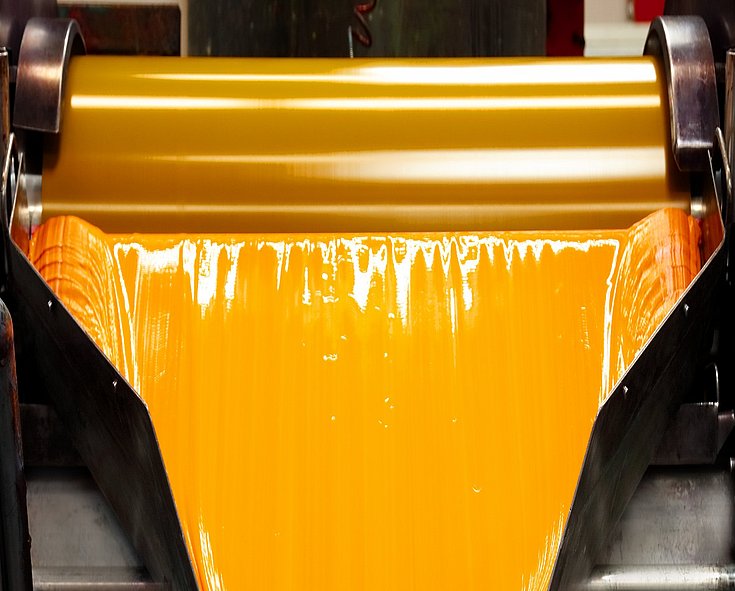
Colors are passion, emotions and personality. At Siegwerk, inks and coatings are our specialty and we use color to bring the packaging and products of our customers to life.

Your circular packaging solutions partner
Packaging plays an essential role in our lives today, contributing to our society's well-being by addressing major global challenges. Especially plastic packaging has gained popularity over the last 50 years as it combines high performance with low cost. But plastic packaging also comes with major challenges as it enters a failing linear economic system based on the principle “take-make-use-dispose.”
Due to a growing world population and rising income levels, the demand for plastic packaging will further increase and therefore intensify this problem.
All in all, plastic packaging has a strong value proposition: it is vital to protect and preserve goods in global value chains and contribute to prosperity and wellbeing of a growing world population. But this value proposition is being challenged due to negative consequences in the linear system such as ocean littering and health concerns. This contradiction between challenges and opportunities of plastic packaging is known as the plastics paradox.
To meet today’s consumption patterns, we would already need three planets in the developed world, but we only have one.


However, plastic packaging also comes with challenges as it enters a failing system. Our linear economy follows the principle “take-make-use-dispose” resulting in discarding about 90 percent of plastic packaging after a single use. Only 10 percent of the world’s plastic packaging has been recycled – and as such the material being used again. And even more serious: Around 30 percent (>50m tons) of the annual plastic waste is not formally disposed but leaked into the environment.


That is, why it's not only about improving existing packaging solutions but to transfer packaging to a new way of management - away from a linear towards a circular model, that decouples economic development from using finite resources, allowing for wellbeing while respecting the natural boundaries of our planet. By moving from a linear to a circular model, the amount of resources entering the system is limited, their utilization along the value chain is maximized and the generation of waste is stopped.
Circular business models clearly offer new forms of value creation with significant economic potential. As a global leading manufacturer of printing inks for packaging applications and labels, Siegwerk is making every effort to actively drive the transformation towards a circular packaging industry by providing special inks and coatings that enable the development of new circular packaging solutions.

We are committed to rethINK packaging in the sense of a Circular Economy to protect our environment by recycling, reusing, and reducing packaging. It’s about enhancing the performance of packaging to create circularity enabling 100 percent collection and recycling. By doing so, we can benefit from the advantages of packaging - especially of plastic packaging – without the current negative side effects such as ocean and nature leakage.
For the realization of circular packaging solutions, inks and coatings play an essential enabling role due to their technical functionalities. They can close technical performance gaps of certain materials, such as paper and mono-plastic, improve their properties and therefore allow their use for new applications. That’s why we are actively driving the formulation of eco-friendly inks and coatings concretely addressing the needs of circular packaging solutions. Therefore, we continuously rethink our solutions to further boost material performance and reduce complexity of packaging structures always focused on reusability, recyclability, and the reduced use of non-renewable raw materials.
Today, we already have a broad track record in customer-specific ink and coating development projects for circular packaging solutions that - among others - increase recyclability, enable composting, and support packaging design based on renewable materials. All our circular solutions are flexible regarding substrates, printing technologies and ink systems.
We are constantly working on new sustainable ink technologies and functional formulations to further expand our circular solution offering and enable new circular packaging applications. Thereby, all inks and coatings are always designed to meet our customers’ individual requirements unleashing packaging’s full potential and enabling its use in a Circular Economy.
Limiting the use of finite resources and exploring the re-use of packaging
Closing the loop for plastic waste through high quality recyclate and its application
We have already started our own journey towards becoming a circular and digital packaging solutions company by not only developing circular inks and coatings but also rethinking our own operations and business according to a circular approach. We are committed to help our customers to cover the final mile to achieve their sustainability goals by providing innovative solutions as well as strategic and operational guidance on both packaging development and optimization in the sense of a Circular Economy.
We are there to also support you on your Circular Economy journey - from rethinking your packaging solutions and developing circular packaging innovations to implementing sustainable processes. Contact us now.

A Circular Economy gives us the ideas and tools on how to solve the plastics paradox. It is now up to us, as business representative, to prove that we can make it happen.
Alina Marm, Global Head of Sustainability and Circular Economy at Siegwerk

Siegwerk’s goal is to develop truly sustainable packaging solutions which deliver a system-level perspective on the packaging life cycle and to fully understand how the single actions of individual members of the value chain work together effectively.
Dr. Nicolas Wiedmann, CEO Siegwerk